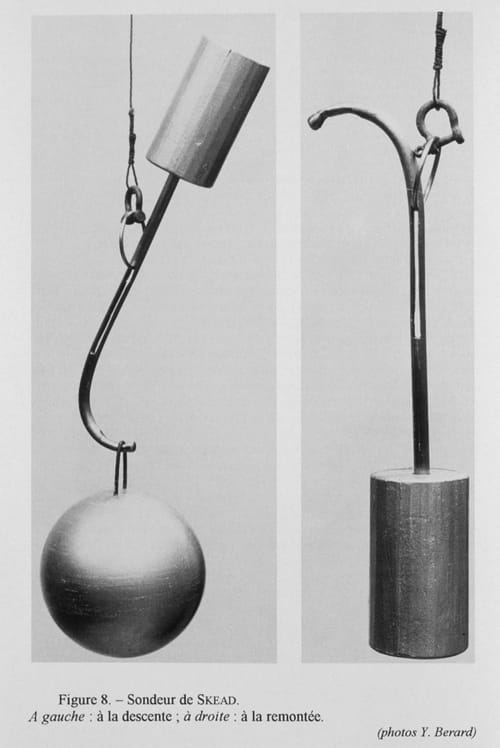The words are purposes.
The words are maps.
I came to see the damage that was done
and the treasures that prevail.
—“Diving Into the Wreck,” Adrienne Rich, 1973
At the final XOXO Festival in late August, I gave my first live talk on a real stage in many years, and it boiled down to this: The networks we use to communicate across fields and distances, to find our friends and learn from people unlike ourselves—and to organize ourselves to respond to acute crises and long, grinding institutional failures—are the same networks that are making so many of us miserable and/or deranged.
We need new networks that genuinely work better, not only for indie-web people or tech people or other outliers, but for all of us working toward collective survival. And I don't think we'll get them by just trying harder—or by swapping in new infrastructure toward the same old ends, or by building reflexively against the cartoon versions of old networks, and definitely not by trying to scold people into make more ethical social networking choices.
For years, across jobs and gigs and fields, I've been making the case that we can't build better things unless we figure out what has been happening to us—what's gone wrong or right, and how, and according to whom, and on what evidence—and then use the things we learn to try new things, carefully and attentively, until we get to something genuinely useful and good.
I think the wreckage of our recent past holds information we need—and sometimes even bits of working machinery waiting for us to scrub off the rust and refit them for use. I think we can get to those treasures with something halfway between journalism and academic study with a side of user research and a modest gesture toward one of our civilization's greatest quiet civic achievements, the National Transportation Safety Board Report. (I think this is true for a much broader set of things than networks.)
I'm after what Adrienne Rich’s diver is after:
the wreck and not the story of the wreck
the thing itself and not the myth
So: What even are these systems in which we live and work and—stripping away the ideologies of what corporations and technologies cannot possibly be expected to do—how should they function?
Who’s out there making new plans and trying new things based on hard-earned experience of life and work in the debris of the internet dream? Can their approaches and countermoves jostle us out of lazy assumptions? What are the cultural and social patterns our systems have failed to account for, and which could help steer us right?
These are my questions! They are many.
So far, I’ve done some preliminary writing on my personal site and two extended and quite different research projects—a series on what Meta and Facebook did and didn’t do in Myanmar and, with Darius Kazemi, an in-depth ethnographic look at how governance works on the fediverse. Since publishing the governance findings and doing a network talk at the final XOXO Festival (I'll update once the video is live), I've mapped out one thing I'm working on next and kicked off a couple of behind-the-scenes collaborations with folks experimenting toward better network futures.
Now I'm finally doing the thing I've been imagining for a decade and making a real place for this work—a solo studio with plenty of reading chairs, a home for exploratory research, a platform for structured interviews with thoughtful people from all over new-network world, a peg for collaborations with specific network projects, and maybe (cross fingers, toss salt) a kitchen-table press for some little books. And also a way to say: For the first time in many years, you can hire me! Or you can send me a proposal for working together and finding funding jointly. And you can also support my work directly.
I'm fundamentally a practitioner, and the people I'm working for are the ones building, tending, enlivening, and securing experiments in online community and sociability in our patchy, beautiful, damaged landscape. There isn't an existing market for this kind of work, so I'm…setting up my own, on the scale of a roadside fruit stand—which is, as it happens, one of the ways my family made ends meet when I was little. This site will be its home. (I talk a little about why it's named wreckage/salvage over here.)
Opening a community of support here will help me put more time into the open-source projects that need the kinds of work I do (user research, editorial/comms planning and doing, product strategy, inter-project coordination, community design) but are working with shoestring budgets.
Are there enough people who are interested in these problems and find value in my work to sustain a me-shaped contribution to the community? Maybe! Maybe I can stitch together community support plus the odd grant and gig and make it work.
Let’s find out. (And it you're into it, consider joining me? I have a few fun things up my sleeve.)
Notes
The image at the top of this post is taken from a catalog of the collections of the Oceanographic Museum at Monaco, housed in the National Oceanic and Atmospheric Administration's digital collections, and depicts an ocean-sounding device invented by Francis Skead for (the records say "during," which is even better) surveying for telegraphic cable-laying between Malta and Crete in 1857. The first part (left in the figure above) was intended for the descent phase of the sounding, while the second (right, above) was for the ascent. Skead had previously been second master on the HMS Enterprise during the British Navy's Franklin Search Expedition to look for the missing Franklin Expedition.
